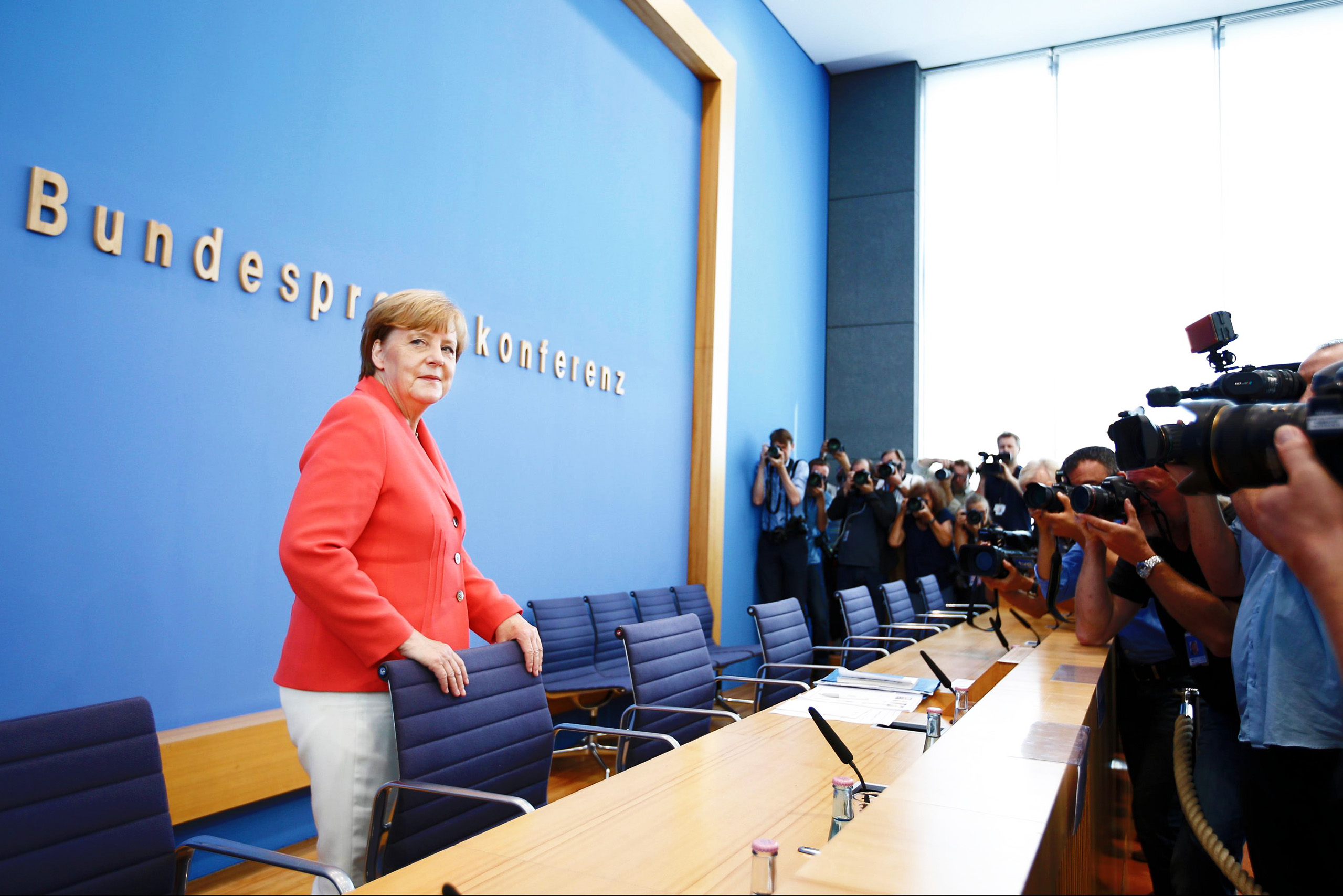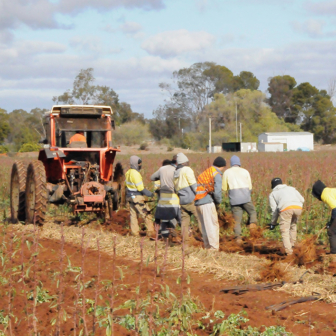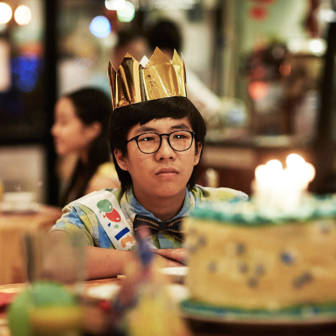Thousands of refugees entered Germany in September 2015 — thousands on each of its thirty days, that is. On the first weekend of the month, the news magazine Spiegel reported, close to 20,000 arrived at Munich Central Railway Station alone.
Ten years on, Germany is remembering those heady late summer days. Newspapers and magazines are publishing countless feature articles, interviews with key participants and portraits of men and women from Syria, Afghanistan, Iraq and Eritrea who have since become German citizens.
By the time that summer was over, Germany was a different country. Not only did the arrival of hundreds of thousands of refugees, most of whom have remained, make a profound difference. But anxieties about and resentment of their presence have translated into electoral victories for the far-right Alternative for Germany, or AfD. And contested memories of those tumultuous weeks in 2015 have transformed German politics more broadly.
Most of the journalists writing about the tenth anniversary of the refugee arrivals have focused on Angela Merkel’s “Wir schaffen das!” (“We are able to do this”). Since Konrad Adenauer’s reign in the 1950s, German chancellors have used parliament’s summer break to front the media for the annual Sommerpressekonferenz, an extended press conference, and it was on such an occasion, on 31 August 2015, that Merkel first used the three words that would come to define, and haunt, her twelve years in office.
Merkel’s plea is now mostly understood as a prediction. As such, it raises two questions. Was Germany able to deal with the arrival of hundreds of thousands of refugees within the space of just a few weeks? And have they since been successfully settled?
If “Germany” meant the German government, then the answer to the first question has to be “no.” The influx overwhelmed federal and state authorities. They lost count of the new arrivals, not least because some of them transited through Germany to Sweden and other countries. Even now it is impossible to come up with a reliable estimate of the number of refugees who entered Germany in September and subsequently applied for asylum.
The agency that became emblematic of the state’s ineptitude is generally known only by its acronym, LaGeSo. Berlin’s Department of Health and Social Affairs had the job of registering all refugees arriving in the nation’s capital and assigning them a facility where they could sleep and be clothed and fed. When I visited LaGeSo, a large complex of offices in the Berlin suburb of Moabit, in 2015, I witnessed scenes that I had not expected to see in twenty-first-century Germany. There was no semblance of order. Hundreds of people were camping out on the street hoping eventually to be processed.
But that visit also showed me why a focus on the capacities of federal and state governments told only half the story. Volunteers handed out water and food, provided advice and calmed the nerves of people who were confused by the chaos. Because civil society came to the rescue, Germany was able to deal with the newcomers, accommodate them, feed them and provide them with some orientation.
People who had never before taken an interest in asylum seekers welcomed refugees at train stations, donated clothes, accompanied new arrivals to the immigration office or the doctor, provided toys and organised activities for children and set up language classes. Some invited refugees to live with them. It has been estimated that in 2015 every fourth German was assisting the new arrivals in some way.
The answer to the second question — was resettlement successful? — depends on whom you ask. Most academic researchers agree that, by and large, those arriving in 2015 have made a new life in Germany and settled as well as could be expected. But they usually qualify their answer. Yes, labour market participation rates for men who entered the country ten years ago are actually slightly higher than for other male residents. But participation rates for refugee women are far below the national average. And refugees with tertiary education or specialised skills have often been unable to find a job where they could make use of their training and experience.
Yes, most have long moved out of refugee hostels. But some have had great trouble finding suitable accommodation. Apart from a general shortage of housing in German cities, there is a particular shortage of flats that can accommodate families with more than three children, and some landlords are reluctant to have tenants who are black or Muslim. Ten years on, the city state of Hamburg is still accommodating more than 5300 people in hotels at a cost of €83 (A$148) per person per night. Others have been housed in tents, even in winter.
Yes, many of those who came as children have done exceptionally well at school and speak German fluently. But the same isn’t true for some of the adults, and particularly for women who were unable to read when they arrived.
And yes, many of those who arrived in 2015 have decided to take out German citizenship. But some Ausländerämter, the local government offices responsible for non-citizens, take several years to process applications for naturalisation.
To give them credit, most journalists have taken note of the research about refugees’ employment, education and training, and housing. But other contributors to public debate seem to have let themselves be guided by preconceived ideas rather than evidence.
Politicians on the right of the political spectrum, including chancellor Friedrich Merz of the Christian Democrats, have claimed that the settlement of the new arrivals has not been a success. Merz and his conservative allies in the Christian Democratic Union and its Bavarian sister party, the Christian Social Union, argue this is further proof that Angela Merkel’s response in 2015 was wrong.
Those on the far right have gone further and blamed all asylum seekers and refugees for crimes perpetrated by a handful.
And what about the refugees themselves? Even those among the new arrivals who have settled most successfully — securing a German passport, reuniting with their families and finding gainful employment — have not been unequivocally positive about their experience. A recently published study found that in 2023 of those who applied for asylum between 2013 and 2022, only 65 per cent felt welcome — twenty percentage points lower than five years earlier. The key reason for their misgivings is deeply worrying: particularly in the past three years, migrants generally, and refugees in particular, have often experienced racism.
There is yet another way of assessing whether Germany was “able to do this.” Rather than focusing exclusively on the refugees who arrived that year, it’s worth remembering what happened in 2022. After Russia’s full-scale invasion of Ukraine, Germany accommodated more than a million refugees from that country — more, incidentally, than had arrived from Syria, Afghanistan, Iraq and elsewhere in 2015. Compared with 2015, 2022 was undoubtedly a success story — which suggests that the authorities learned from the mistakes made seven years earlier (with civil society again playing a key role too).
But another difference between Germany’s response to the arrival of asylum seekers in 2015 and those fleeing Ukraine in 2022 has also been apparent to non-Ukrainian refugees. Why, they have asked, have the Ukrainians be treated so much more generously than us? Ukrainians were not required to seek asylum, they were immediately allowed to work, they could choose where to live, and they had access to the same social benefits afforded to Germans.
In her memoirs published late last year, Angela Merkel credited her co-author and long-time political adviser Beate Baumann with the idea of declaring “Wir schaffen das!” at the 2015 Sommerpressekonferenz. “She is right,” Merkel remembered thinking at the time. “If I convey this message, I can provide encouragement and at the same time show that I am aware of the magnitude of the task.”
But what exactly was that task? Was it to provide shelter to hundreds of thousands of people, most of whom carried only a small backpack when they arrived? To process a large number of asylum applications? To help successful applicants to settle?
Five days before the Sommerpressekonferenz, Merkel had visited a reception centre in the small town of Heidenau in the southeast of Germany. On 21 and 22 August up to a thousand people, some of them mobilised by the far-right National Democratic Party (which was represented on the Heidenau town council), had rioted in front of a former hardware store repurposed to accommodate asylum seekers. They had attacked the police deployed to ensure that buses ferrying asylum seeker to their new accommodation could safely reach their destination.
When Merkel visited on 26 August, she was abused by some protesters. Footage showed a woman yelling “cunt” — which many viewers would have found more shocking than the vitriol poured on the asylum seekers. Others chanted “Volksverräterin” (traitor), a term the Nazis used for their internal enemies.
In her memoirs, Merkel claims that she was focused on her statement to the media as she left the building where the refugees were housed, and only became aware of the mayhem created by the protesters when she listened to the news. That may have been the case. But afterwards she appeared shocked by the experience.
When she addressed the Sommerpressekonferenz five days later, she prefaced her “Wir schaffen das!” with a statement that clearly referenced the Heidenau riots and possibly also the hatred she herself had experienced. “We need to clearly distance ourselves. There can be no apologies,” she said. “The key is not to show even the slightest bit of understanding. No biographical experience, nothing that happened in the past, nothing, absolutely nothing justifies [their] stance.”
Merkel doesn’t remember “Wir schaffen das!” through the prism of Heidenau in her book. Journalists and politicians pontificating about the tenth anniversary of the “refugee crisis” rarely mention Heidenau. In fact, the tenth anniversary of the racist riots of 21–22 August 2015 didn’t receive much attention, though a recording of Merkel’s plea of 31 August, “Wir schaffen das!” has for weeks been replayed in the electronic media.
Irrespective of whether or not Merkel’s refugee policy was informed by Heidenau, it makes sense to keep that protest in mind when asking whether Germany “has been able to do this.” Here, the answer is again “no.” The far right was not marginalised; to the contrary, the far-right AfD might well overtake the Christian Democrats at the next federal election; in opinion polls, it already leads in all five East German states. The sentiments that fuelled the protests in Heidenau and other places ten years ago have not diminished.
There are many reasons why these sentiments, and a concomitant penchant for authoritarianism, were deeply ingrained before 2015, and have remained so since, both in East and West Germany. One reason why racist attacks on people who are visibly different (on account of their religion, skin colour or language) are increasing is that Merkel herself, and much of the political establishment from the Greens to the Christian Democrats, did not heed her call: “We need to clearly distance ourselves. There can be no apologies.”
To Merkel’s credit, while she made some concessions to those wanting to curb refugee arrivals, she has kept her distance. Others have normalised a language that engenders racist violence. They include former chancellor Olaf Scholz, who in 2023 called for deportations of migrants “on a big scale.”
That same year, then opposition leader Merz claimed that asylum seekers come to Germany to have their teeth fixed, with the result that Germans can’t get an appointment with their dentist. In January 2025 he introduced a resolution into parliament calling for a harsher asylum regime, which was passed courtesy of the AfD. He justified his move by railing against “illegal refugees,” saying, for example, that Germany had a “massive problem” with crimes committed by foreigners, particularly asylum seekers, and that gang rapes perpetrated by asylum seekers were happening on a daily basis.
In Germany, as in Britain and the United States, people seeking protection are now held responsible for all manner of ills. More often than not they referred to as “illegal immigrants” or “illegal refugees,” including by government ministers.
But not all can be blamed on Merz, Scholz and other politicians who have helped shift the discourse about forced migration and protection. Refugee advocates must take some responsibility. They have relied on harnessing emotions (the pity prompted by Turkish photographer Nilüfer Demir’s image of a drowned boy, Alan Kurdi, for example) and on arguing that welcoming refugees makes economic sense.
They have failed to initiate an informed debate about the question: “Why ought Germany welcome refugees?” Such a debate should grapple with issues of justice and the question of whether solidarity (rather than pity) could be a useful foundation. Rather than simply referring to international law and the German constitution, it would need to try spelling out what exactly is meant by Article 1 (1) of Germany’s Basic Law — “human dignity shall be inviolable” — and to explain why the constitution’s drafters made the right decision when they put human dignity first.
The day of the 2015 Sommerpressekonferenz, 31 August, was not the day when the Merkel government formulated its response to the refugees stranded in Hungary and hoping to be able to proceed to Austria and Germany. It was five days later, on 4 September 2015, when Merkel and her Austrian counterpart Werner Faymann decided that Austria and Germany would not close their borders. It’s that decision (often erroneously equated with a decision to open Germany’s borders) that Merkel’s critics, including Merz, have subsequently identified as a momentous blunder.
For years, their mantra has been: “There must not be a repeat of the events of 2015.” Even Merkel agreed. But they have been unconvincing when asked what she should have done instead in early September 2015. Use the federal police or the army to protect the border? And what if somebody had tried to cross it anyway? Give the order to shoot any presumed intruder?
In her statement in front of the former hardware store in Heidenau, Merkel said that people who have been persecuted or are fleeing war have a right to be treated fairly and have their application for protection properly assessed. That has been the law (German law, as well as European law). It used to be German policy. No more.
The current coalition government of Christian Democrats, Christian Social Union and Social Democrats has proclaimed an Asylwende, an about-turn for Germany’s asylum policy. In May, the responsible minister ordered the federal police to turn back asylum seekers at Germany’s borders unless they are vulnerable (without clearly defining what vulnerability means). Since then, the police have barred 11,900 people from entering Germany, including 660 who said they wanted to make an asylum claim.
That is against European law. A court in Berlin has already said as much in a case concerning three Somali refugees. Even Angela Merkel, in a rare comment on current government policy, has condemned the minister’s decree. He doesn’t care and says he won’t budge. Of course, he may be emboldened by other EU member states, including Greece, Poland, Croatia and Hungary, that routinely flout European refugee and human rights law when they engage in pushbacks at their borders.
The new policy is hardly going to stop irregularised migrants from entering Germany. In fact, I wouldn’t be surprised if most of the 660 who expressed a desire for asylum later managed to enter Germany, as Germany’s nine neighbours have no interest in accommodating them.
The new policy is designed to alleviate the concerns of a majority of Germans who believe there are too many migrants in the country and arrival numbers need to be drastically reduced. It is designed to tell them: “Look, we take your concerns seriously. You have a point. The government is now acting decisively.”
That policy too is going to shift the discourse further and help normalise the anti-migrant rhetoric spouted by leaders of the AfD (and increasingly by others). Merkel was right: “We need to clearly distance ourselves.” But in that regard, her plea “Wir schaffen das!” fell on deaf ears. •




